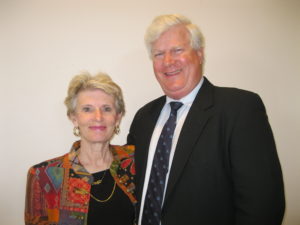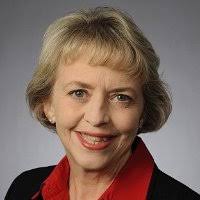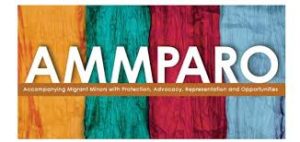 Midwest Encounters Middle East
Midwest Encounters Middle East
Mark & Lois Finanger will reflect on their 28 years of living and working in Saudi Arabia. The Finangers will emphasize the unique challenges of navigating the Saudi culture, past and present.
An ELCA Congregation in Decorah, IA
 Midwest Encounters Middle East
Midwest Encounters Middle East
Mark & Lois Finanger will reflect on their 28 years of living and working in Saudi Arabia. The Finangers will emphasize the unique challenges of navigating the Saudi culture, past and present.
GOOD SHEPHERD’S LENTEN EVENTS AND WORSHIP – WEDNESDAY, MARCH 7:
NOONTIME RECITALS – The Lenten Recital Series begins this month. The recitals, held in the sanctuary, last approximately 30 minutes. The public is welcome. Attendees are welcome to bring lunches; coffee and light desserts will be served in the Fellowship Hall following the performance.
 RECITAL, 12:15 p.m. – Professional Cellist Craig Hultgren will perform Johann Sebastian Bach’s G Major Suite, “Quiet Music” by Andrew Rindfleisch, and one of his own improvisations accompanied on the organ by Brooke Joyce. Hultgren moved to the Decorah area in 2015. He is an advocate for newly created music; close to 300 works have been written for him.
RECITAL, 12:15 p.m. – Professional Cellist Craig Hultgren will perform Johann Sebastian Bach’s G Major Suite, “Quiet Music” by Andrew Rindfleisch, and one of his own improvisations accompanied on the organ by Brooke Joyce. Hultgren moved to the Decorah area in 2015. He is an advocate for newly created music; close to 300 works have been written for him.
 WORSHIP, 5:30 p.m. – Thirst No More – From Pastor Amy: Isaiah calls us to be fed and nourished by God’s word. Resurrection is like a free feast, baptism like water for the thirsty, God’s grace like rain on the earth. The service begins with the liturgy for Evening Prayer from ELW. Congregation members Amalia Vagts, John Jefferson, and David Judisch will read contemporary poet Emily Ruth Hazel’s work “Word of Mouth”, based on Isaiah 55:7-13. The Bible passage and poem can be found at this link: https://sparkandecho.org/illumination/word-of-mouth_emily-ruth-hazel/ Guest choir, Luther College Norsemen, conducted by Mark Potvin, will participate in the service.
WORSHIP, 5:30 p.m. – Thirst No More – From Pastor Amy: Isaiah calls us to be fed and nourished by God’s word. Resurrection is like a free feast, baptism like water for the thirsty, God’s grace like rain on the earth. The service begins with the liturgy for Evening Prayer from ELW. Congregation members Amalia Vagts, John Jefferson, and David Judisch will read contemporary poet Emily Ruth Hazel’s work “Word of Mouth”, based on Isaiah 55:7-13. The Bible passage and poem can be found at this link: https://sparkandecho.org/illumination/word-of-mouth_emily-ruth-hazel/ Guest choir, Luther College Norsemen, conducted by Mark Potvin, will participate in the service.
A Simple Soup Supper, prepared and served by congregation members, follows the service. All are welcome!

Third Sunday in Lent
March 4, 2018
Good Shepherd Lutheran Church
Decorah, Iowa
Rev. Amy Zalk Larson
Click here to read scripture passages for the day.
Beloved of God, grace to you and peace in the name of Jesus who sets us free.
What’re the first things that come to your mind when you hear “the ten commandments?” Other than a scene from a movie, what other images arise? A giant finger wagging no, no, no, no? Heavy tablets that come down on us hard to get us in line? Sour faced people trying to restrict freedom and force the commandments on others?
The commandments have taken on a lot of baggage, a lot of extra weight, throughout the centuries and recently in the culture wars. God’s commands are weighty and important, but we miss something when we approach them only as obligations imposed on ourselves and others, as heavy burdens and restrict- ions on our freedom.
In fact, the commandments are all about freedom. They begin with a declaration of freedom. God says, “I am the Lord your God, who brought you out of the land of Egypt, out of the house of slavery.” And what follows are ten commands, or teachings, about how to be free that are just as helpful for us today as they were to God’s people long ago.
God’s people, the Israelites, were in slavery because Egypt’s ruler, Pharaoh, wanted more – more power, more land, more wealth, more cheap labor. He feared scarcity. He kept grasping, hoarding and clinging. He used and abused the Israelites to feed his insatiable greed for more. God saw all this, and God remembered the covenant with Abraham, Sarah and their descendants, the people of Israel. God said enough, no more, “Let my people go.” And God brought them out of slavery.
Yet the forces that enslaved the people in Egypt are found in every land, in every time, in every heart.
Pharaoh, with all his arrogant violent greed, is not contained in Egypt but is all around us and within us.
Staying free from Pharoah takes more than a one-time rescue. It takes an intentional strategy. So, God renewed the covenant made with Abraham and Sarah and God gave the commandments to teach the way to be free. They are, as scholar Walter Bruggemann puts it, the strategy for staying free.
This is a countercultural view of freedom – to think that following rules and commands helps us to be free. So often we hear that freedom means getting to do whatever we want, not being bound to any higher power, no obligations. Yet, if we don’t follow the commandments, Bruggemann points out, we find ourselves back in slavery, back in the grip of Pharaoh and that insatiable hunger for more: “Back to having to produce on demand, Back in the rat-race of production and consumption, Back in fear, anxiety and alienation, Back in hostility toward the neighbor.”
God gives us a different way to live, a strategy for staying free. To stay free, we need to honor God instead of all the idols, all the other things we hope will give us more – more control, more security, more wealth.
We need to honor God rather than acting as if we are the center of the universe, as if we deserve to have whatever we want.
We need to not worship stuff, even stuff that is rare, precious, or empowering. We need to give ultimate loyalty to God rather than any race, gender, ideology, political party or nation. All those things promise a sense of belonging and security, but they can’t free us from wanting more and the drive to use and abuse others to get more. We need to rest, to keep Sabbath and worship God so we don’t fall into the rat-race of busyness and exhaustion that the Pharaohs within and around us demand. To stay free, we need to turn away from violence and greed and turn toward the neighbor – recognizing the worth and dignity of every neighbor, not craving or seizing what belongs to the neighbor.
The strategy for staying free can be summarized as love God and love the neighbor.
Recently, I read a dramatic story about one community seeking to live in the freedom of the commandments amidst all enslaving forces in our world. In 2008, an Augsburg College student, a Somali American, was gunned down as he left his work-study assignment tutoring neighborhood children. Augsburg’s President Paul Pribbenow reflected on this tragedy in a recent article. He describes how, in the wake of the shooting, the college’s Somali American neighbors were troubled and afraid – afraid of the violence and afraid of retribution for their community. The college also had to wrestle with whether it was safe for their students and faculty to be out in the neighborhood doing service learning, a central component of an Augsburg education.
Pribbenow writes, “Someone broke one of God’s commandments and we lived in the aftermath. It was in that moment that it became so clear to me … that God gives us commandments so that we might know the sort of lives God intends for us to live together … At a neighborhood meeting … to address safety concerns … we all experienced firsthand the wrenching emotional impact of the shooting on our lives together. Though we intended to talk about security cameras and safety patrols, instead we listened to urgent longing for community. When a Muslim Imam stood to speak, his first words were ‘God is good.’ And though we were a room of people of very different faith traditions, we could whisper, ‘Yes, God is good, and this is not what our God wants for us.’ In that spirit, our community came together to rededicate itself to the well-being of our neighbors – yes, to more security cameras and personnel, but even more urgently to finding common purpose in the health, safety, and well-being of our neighbors and neighborhood.”
After such a traumatic experience, the world would say that Augsburg should pull students and faculty out of the neighborhood and back into safety; but that would mean the college would be enslaved by fear and anger. Instead, Pribbenow writes, “We chose to stay, to be neighbor, to embrace the gift of God’s word in our midst and the commandments that offer us a vision of life with our neighbors, a call to defy and reject the forces that rule our lives, the command to love each other.”
Beloved, God has given us a strategy to be free. God has made a new covenant with us as we seek to live out this strategy. God, in Jesus, has come to be present with us, to challenge us, to forgive us and renew us so that we might live in freedom and love.
More on that when we get to that covenant in two weeks. For now, let’s join in a moment of silent prayer and reflection.
 Tuesday, March 5
Tuesday, March 5
9:30 a.m. – Mary Circle – Marilyn Anderson hosts
Wednesday, March 7
7:30 a.m. – Men’s Breakfast
12:15 p.m. – Lenten Recital – Craig Hultgren, cello
5:30 p.m. – Midweek Lenten Service – Soup Supper following
6:45 p.m. – Handbell Practice
7:00 p.m. – Choir Practice
8:00 p.m. – Band Rehearsal
Thursday, March 8
10:00 a.m. – Bible Study with Pastor Amy – Narthex
12:00 p.m. – Stewardship Committee, Preus Library
1:30 p.m. – Property & Management Committee
7:30 p.m. – Worship & Music Committee
Friday, March 9
11:30 p.m. – Education Committee
Sunday, March 11 – Fourth Sunday in Lent
8:45 a.m. – Handbell Rehearsal
9:30 a.m. – Worship with Holy Communion -11:00 a.m. Broadcast
10:30 a.m. – Fellowship Hour
10:45 a.m. – Sunday School and Youth Forum
10:50 a.m. – Adult Forum – Midwest Encounters Middle East – Mark & Lois Finanger
ADULT FORUM, Sunday, March 4, 2018 – “Immigration. Got Questions? We’ve Got Answers.”
 Melissa O’Rourke, an attorney who is part of the NEI Peace and Justice Center immigration working group, will present information on the legal aspects of the immigration process, such as who can apply, how long is the process, what is meant by “chain migration”, what is DACA and what are its implications. Melissa, along with Lyle Otte and Marty Steele, will answer questions and provide information important to those who are advocates and allies for immigrants. Marty will provide brief information on AMMPARO activities.
Melissa O’Rourke, an attorney who is part of the NEI Peace and Justice Center immigration working group, will present information on the legal aspects of the immigration process, such as who can apply, how long is the process, what is meant by “chain migration”, what is DACA and what are its implications. Melissa, along with Lyle Otte and Marty Steele, will answer questions and provide information important to those who are advocates and allies for immigrants. Marty will provide brief information on AMMPARO activities.
Copyright © 2025 · Good Shepherd Lutheran Church. · 701 Iowa Avenue, Decorah, IA 52101 · Contact Us · Privacy Policy